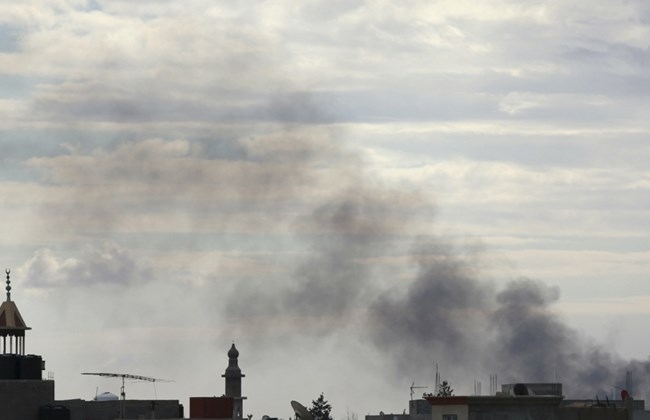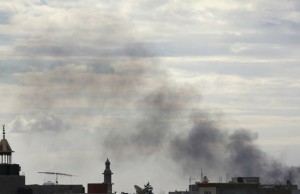ABC NEWS
by Rami Musa and Maram Mazen, AP
The signing of a U.N.-sponsored deal aiming to end Libya’s conflict by forming a unity government has been delayed by a day to Thursday, said Libyan members from the country’s two rival parliaments.
Hamid al-Bandag, a member in the internationally recognized parliament in the eastern city of Tobruk, and Saad Abu-Sharada, a member from the Islamic militia-backed General National Congress in the capital Tripoli, say final talks will be held Wednesday in Sikhrat, Morocco, to sort out last-minute details before the signing.
The U.N. deal has detractors on both sides. Abu-Sharada says the two heads of the rival parliaments are starting meetings Tuesday in Malta to forge a separate deal without U.N. involvement.
“It’s not clear whether that meeting will actually produce a government whereas the U.N. signature will actually endorse a government that has been already proposed,” said Mattia Toaldo, policy fellow on the European Council on Foreign Relations.
“It’s unclear whether the two speakers actually want an agreement or are organizing just a meeting to delay the approval of the U.N. deal,” said Toaldo. “Those joining the U.N. process are the moderates who have supported dialogue all along, whereas the two speakers have demonstrated over time to be hardliners.”
In Malta, the two speakers, Nuri A.M. Abusahmain, president of the General National Congress, and Aguila Saleh Issa, president of the internationally recognized House of Representative (Council of Deputies) of Libya, held talks at the office of Malta’s prime minister.
Starting Wednesday, a number of committees will be set up between the two sides to pave the way forward for a government of national unity. Details such as how a new parliament will be formed will be discussed during these meetings.
“We ask our people to be patient for the sake of Libya. All the people and the world wants stability in Libya . we tell them that this problem will be solved,” Issa said.
Abusahmain said that those who obstruct dialogue “will be punished”.
Those who oppose the deal from the internationally recognized parliament do so because they say no real guarantees are provided to support the army in its fight against militant groups in the country, including the local Islamic State affiliate. The agreement will transfer the leadership of the army from the eastern government to the new unity government.
“I would most likely bet my last dollar on the fact that they’ll attempt to install a government or at least announce a government around roughly the same time as the U.N.,” said Anas El Gomati, director of the Sadeq Institute, a Libyan think tank.
“This is going to be a long stage of hiccups for the U.N.-led process because it’s incredibly fragile. There are many names that are not going to be there at the signing in Sikhrat,”said El Gomati.
As the representatives from both sides taking part in the Morocco talks do not hold official titles to represent their respective parliaments in the talks, the number of people who actually show up in Morocco will be an indication of how much support the U.N.-led deal has, Toaldo said.
Many of the militias in Tripoli support the U.N. process, and Toaldo said there is a chance they may clash with others who oppose it.
“Because of all these divisions, this agreement could actually create conflict in Tripoli between the supporters of the U.N. government and opposition to the U.N. government,” he said.
The U.N.’s unity government deal was drafted by its former envoy to Libya, Bernardino Leon, who accepted a job last month from the United Arab Emirates. The country backs some members of the internationally recognized government, causing some Libyan participants to cast doubt on the Leon’s neutrality.
Libya has descended into factional violence following the 2011 toppling and killing of longtime dictator Moammar Gadhafi. The chaos has opened the door to a surge of migrants and refugees who set off from its coast for Europe in often-rickety boats operated by smugglers. Many have died on the journey.
The Islamic State group also took advantage of the chaos, setting up a local affiliate which is now enlarging its territory inside Libya.








